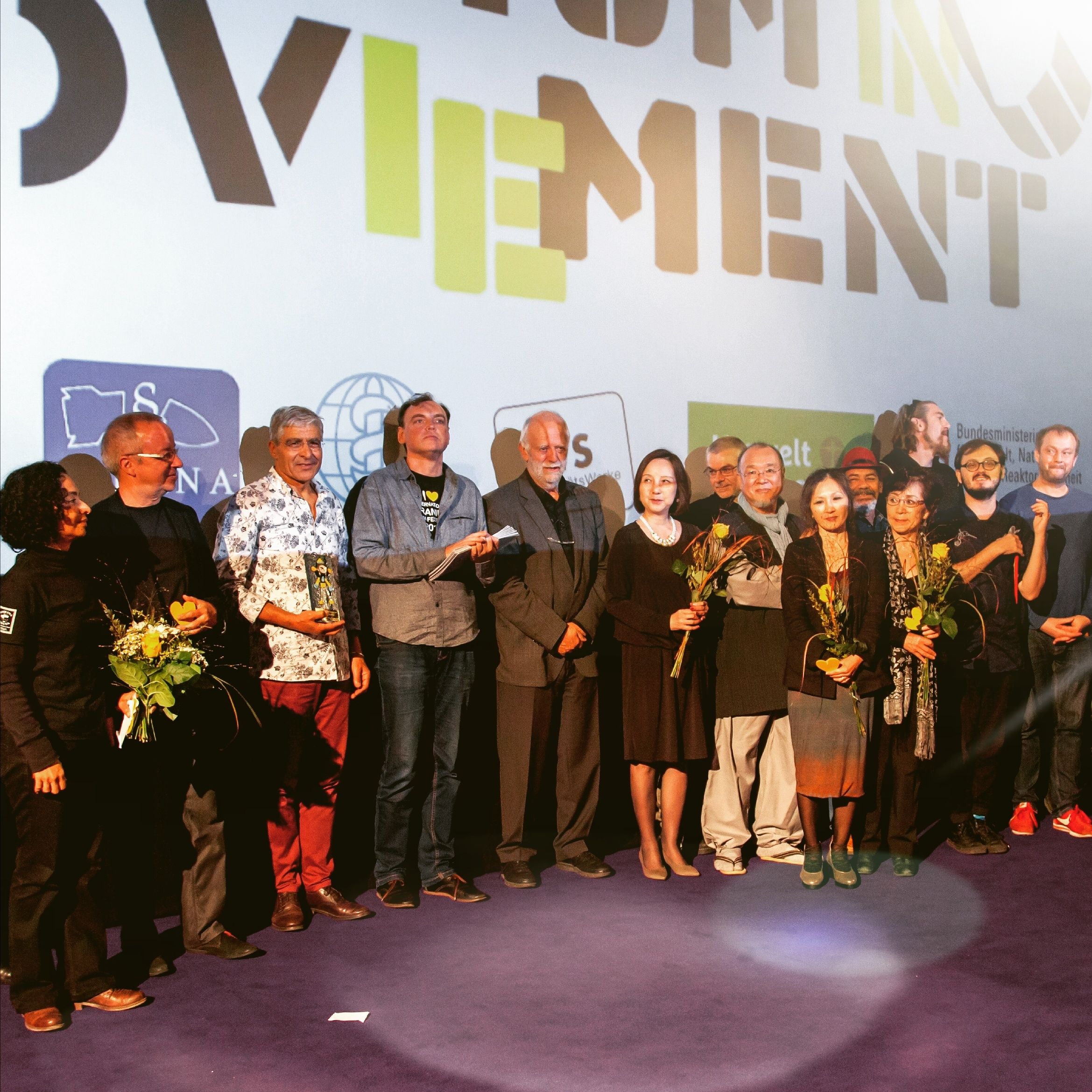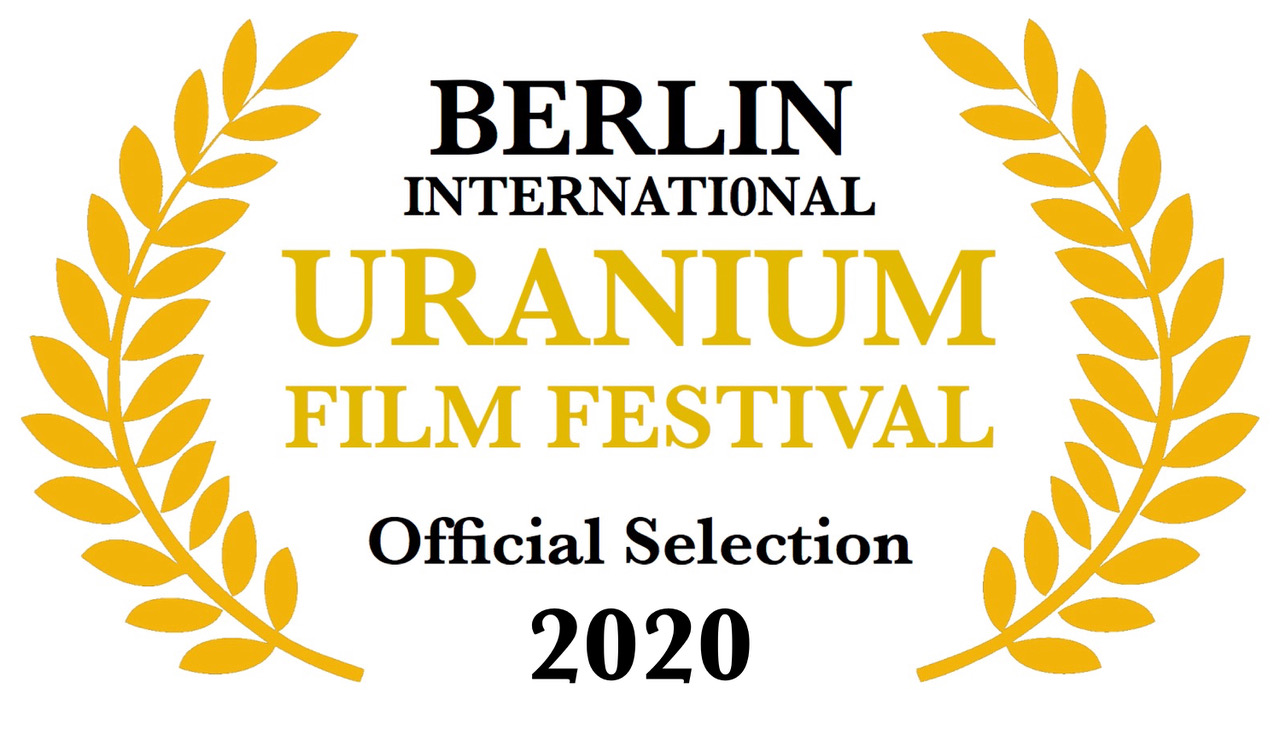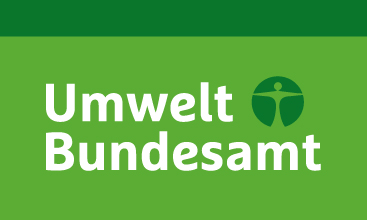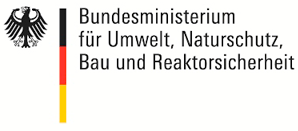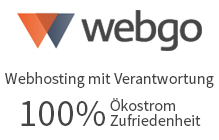IUFF in times of Corona


-
Backers
16
-
Funded
420 €
-
Stage goal
2.000 €
Added value for the environment
The project saves or improves the areas of ...
|
human
|
☆ ☆ ☆ ☆ ☆ |
|
ground, water, air
|
☆ ☆ ☆ ☆ ☆ |
|
climate
|
☆ ☆ ☆ ☆ ☆ |
|
animals and plants
|
☆ ☆ ☆ ☆ ☆ |
|
|
|
|
material and cultural assets
|
☆ ☆ ☆ ☆ ☆ |
|
energy and use of resources
|
☆ ☆ ☆ ☆ ☆ |
Resources used
The resources used are ...
|
produced sustainably
|
☆ ☆ ☆ ☆ ☆ |
|
eco-certified
|
☆ ☆ ☆ ☆ ☆ |
|
fair-trade
|
☆ ☆ ☆ ☆ ☆ |
|
of regional origin
|
☆ ☆ ☆ ☆ ☆ |
|
used efficiently
|
☆ ☆ ☆ ☆ ☆ |
|
recycled, upcycled
|
☆ ☆ ☆ ☆ ☆ |
|
renewable (e.g. energy)
|
☆ ☆ ☆ ☆ ☆ |
Summary
Description
What is the funded money used for?
Why is the project an EcoCrowd project?
Tell us something about yourself.
We work for the future, because ...
-
Aktualisierung #3: IUFF in Zeiten von Corona17.05.2021
Es ergeht herzliche Einladung, an unserem Jubiläums Uranium Film Festival in Rio teilzunehmen!
Vom 20.-30. Mai werden 34 atomare Filme mit Unterstützung des MAM Rio gezeigt und kostenlos online zugänglich gemacht.
Darüber hinaus sind immerhin einige Gäste vor Ort, die in Live-Interviews vorgestellt werden: Am 20. Mai drei Atombombenüberlebende aus Hiroshima, die in Brasilien leben, sowie Akira Kawasaki, Koordination der Peace Boat Foundation, am 24. Mai der ehemalige brasilianische Botschafter Sergio de Queiroz Duarte, der sein Leben als Diplomat der Beendigung der nuklearen Bedrohung gewidmet hat und Cristian Ricardo Wittmann (ICAN Mitglied).
– Wir würden uns freuen, wenn Sie während dieser Zeit Gelegenheit finden würden, sich zuzuschalten! –
Press Release
Invitation!
Rio de Janeiro / April 2021 – Created in Rio de Janeiro, in 2010, the International Uranium Film Festival has reached its tenth edition. A good reason to celebrate! We would have done this glamorous in the gardens of the Museum of Modern Art in Rio with the presence of many international filmmakers. But the ongoing Corona-Virus pandemic made this impossible. For that, from May 20th to 30th, 2021, we’re celebrating the 10th Rio de Janeiro International Uranium Film Festival for free online. And everyone is invited!
We will remember the still unsolved nuclear accident in Fukushima 10 years ago and the UN treaty on the prohibition of nuclear weapons, which has been in force since January of this year. And we dedicate this tenth edition to the filmmakers and producers who have tackled with courage, creativity and passion these difficult issues that threaten the health and lives of millions of people and future generations.
“Photography is truth. The cinema is truth twenty-four times per second”, said film director Jean-Luc Godard in the 1960s. And the filmmakers of the Uranium Film Festival are commited to tell that truth about the history and sometimes hidden consequences of the military and civilian use of nuclear power. We have selected 34 documentaries and movies by 26 filmmakers from 15 countries. The festival program is a mosaic of films by internationally renowned and award-winning directors such as Peter Greenaway as well as young filmmakers such as Peter Anthony, Alessandro Tesei, Brittany Prater and Miguel Silveira, who are well on their way there.
Two films about Fukushima and one film about the creation of the atomic bomb are world premieres. Six films are Latin America premieres. Two live online events complete the mosaic: On May 20, the festival features three atomic bomb survivors from Hiroshima, who live in Brazil, and Akira Kawasaki, coordinator of the Peace Boat Foundation. And on May 24th the festival’s live online guests will be former Brazilian Ambassador Sérgio de Queiroz Duarte who has dedicated his life as a diplomat to end the nuclear threat and Cristian Ricardo Wittmann, member of International Campaign to Abolish Nuclear Weapons (ICAN).
Finally, we would like to thank MAM Rio and its Cinematheque, which has been the venue of the festival since 2012, for the long-term support. Let’s hope that the coronavirus pandemic will be over in the coming year and that the festival can take place live here again.
Film Festival Program Link: https://uraniumfilmfestival.org/en/rio-2021
Festival Brochure Download: https://uraniumfilmfestival.org/files/2021_rio_uranium_film_festival_program_brochure_english_-_low_resolution.pdf
Free Online Screening Link: https://vimeo.com/showcase/uranium2021
(Screening Link available from May 20 to May 30)Aktualisierung #2: IUFF in Zeiten von Corona27.09.2020Neues Tauschgut online:

In Zeiten von Corona haben wir als Tauschgut Special Mundschutzmasken mit atomarem Muster bedrucken lassen. Diese sind jetzt ab sofort in limitierter Anzahl hier erhältlich.
Aktualisierung #1: IUFF in Zeiten von Corona19.08.2020Guter Start!
Vor wenigen Tagen sind wir in die Finanzierungsphase gestartet und freuen uns über die ersten Unterstützer. – Vielen Dank dafür und vielen Dank die Deutsche Umweltstiftung und ans Team von EcoCrowd!
Sponsors
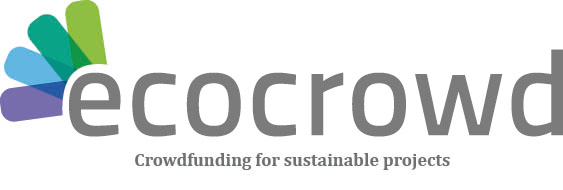
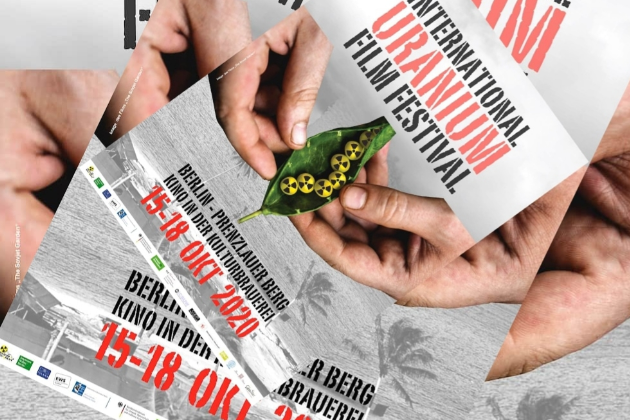


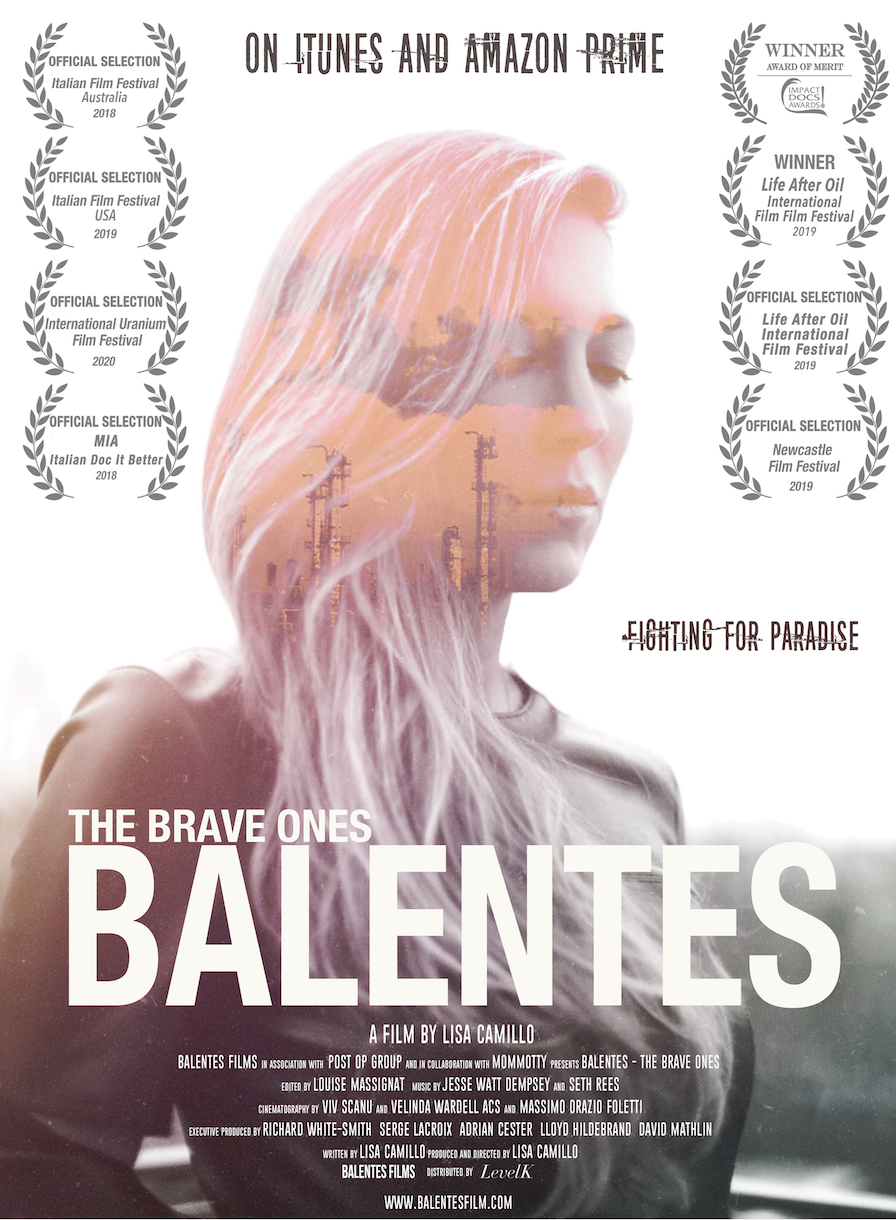
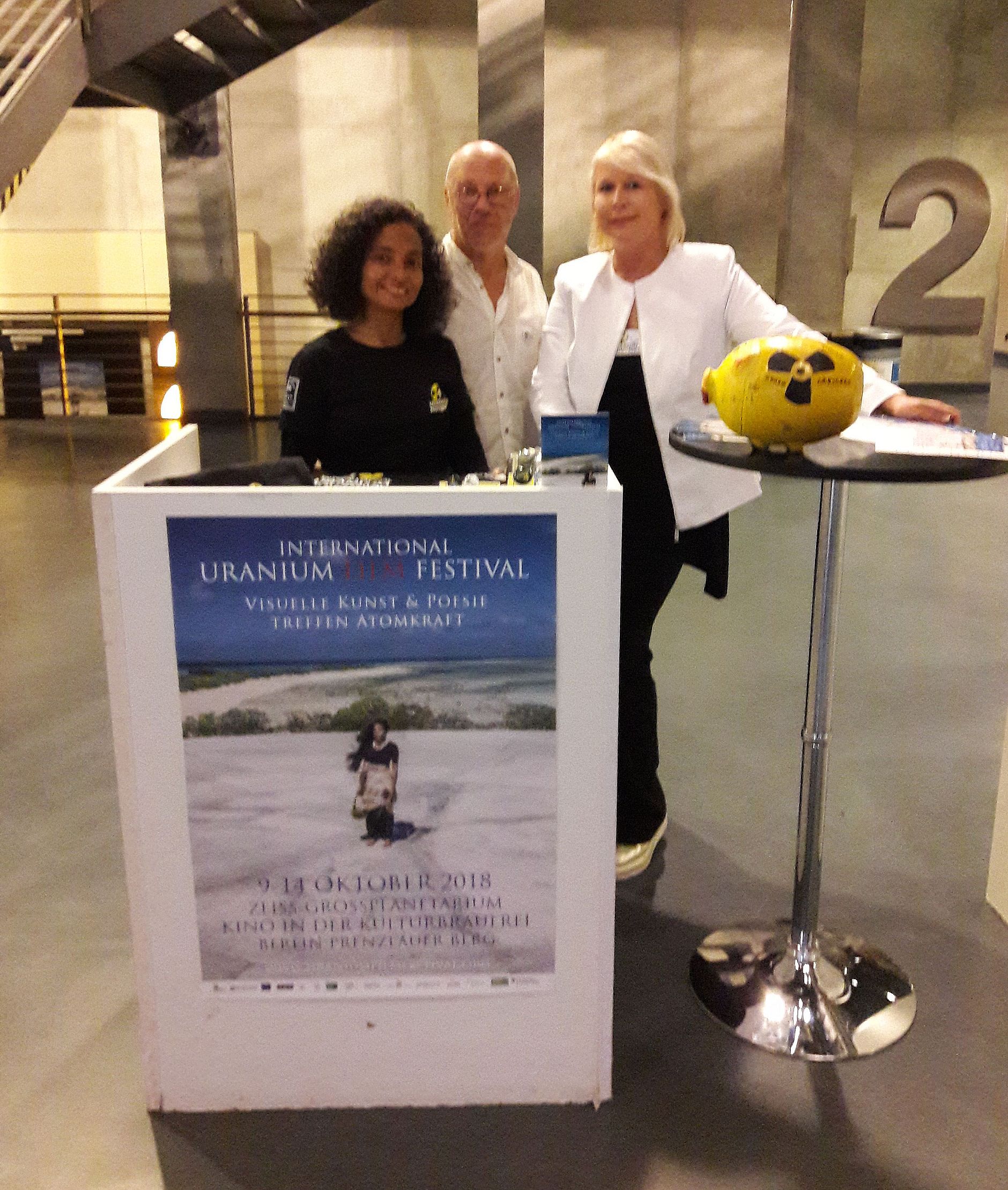
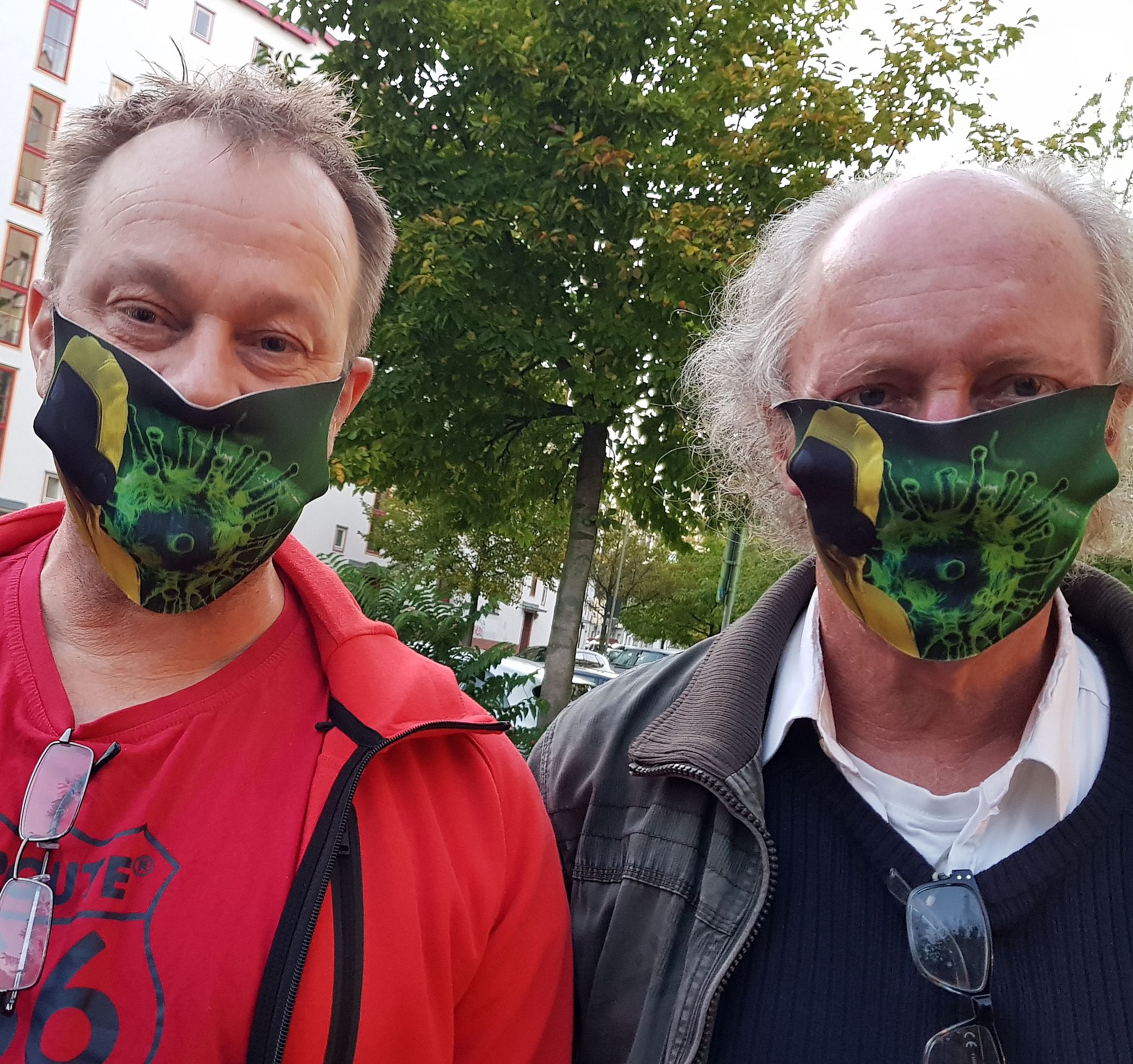
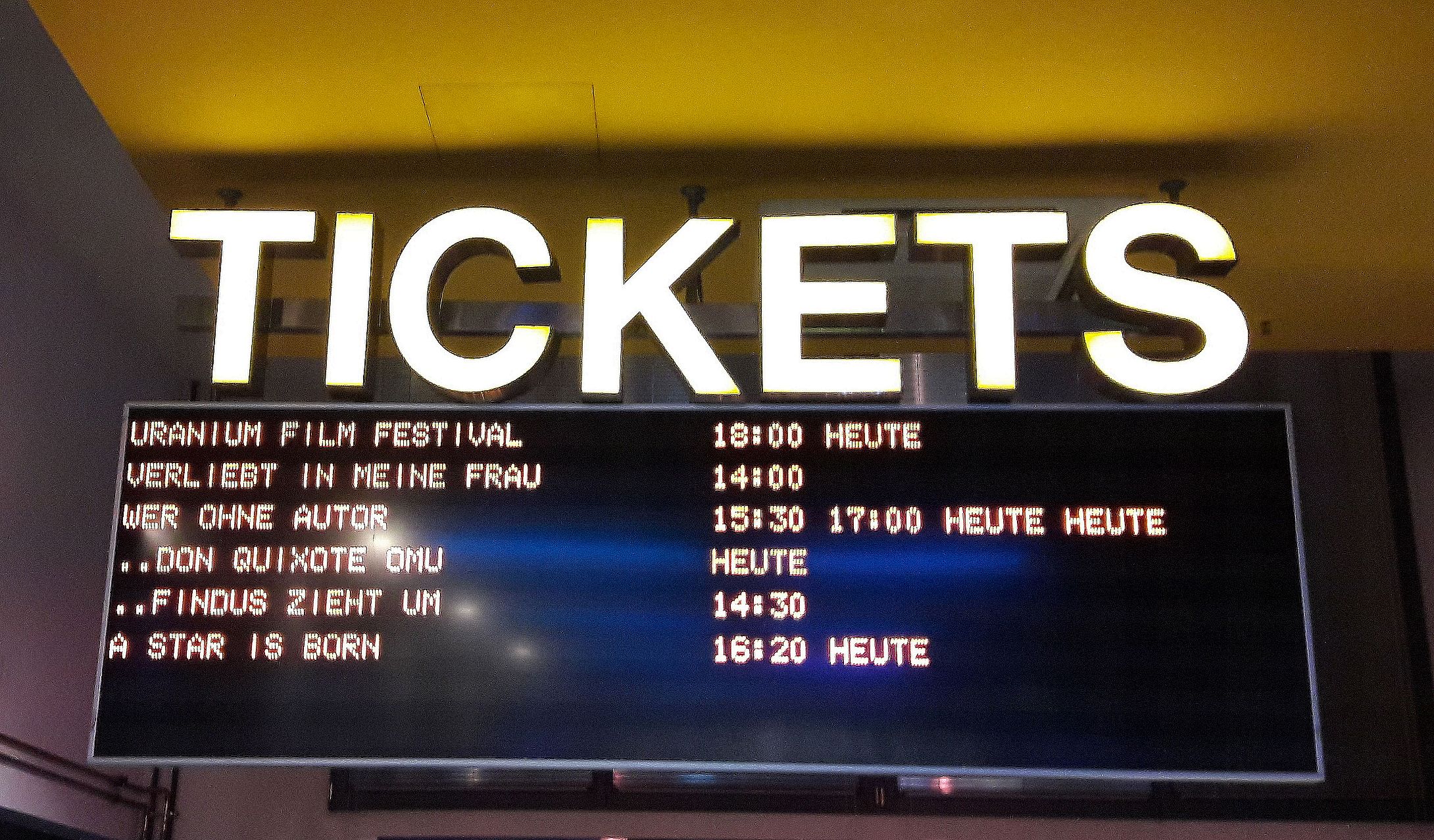
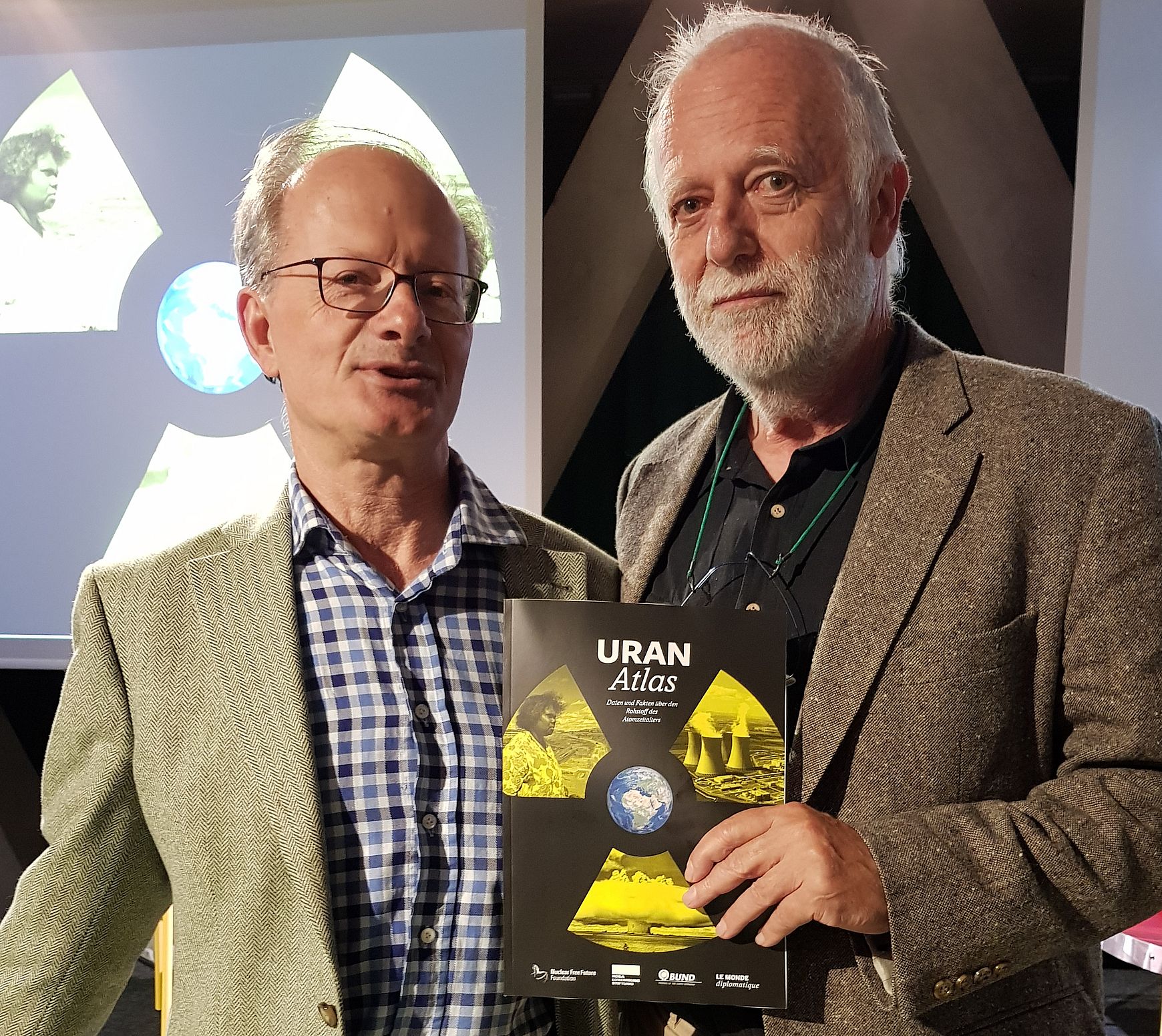
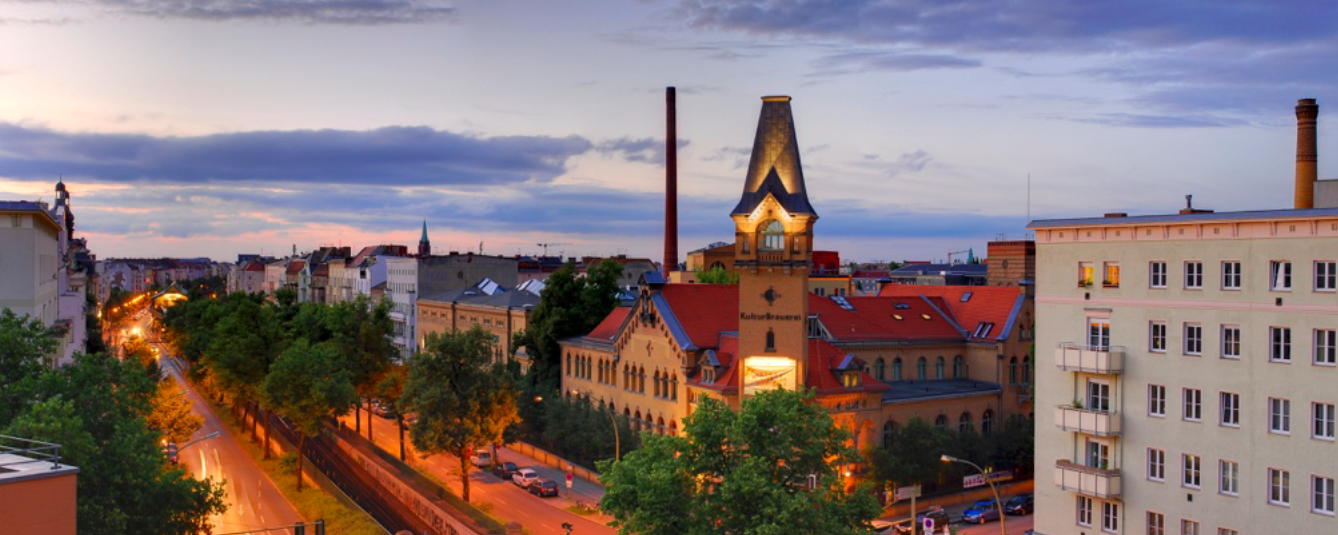 Foto: KulturBraierei Berlin.
Foto: KulturBraierei Berlin.